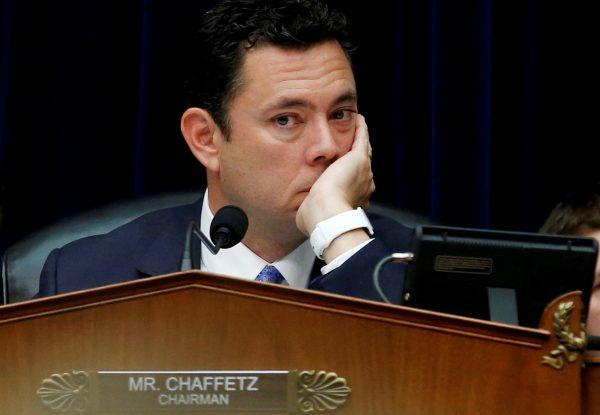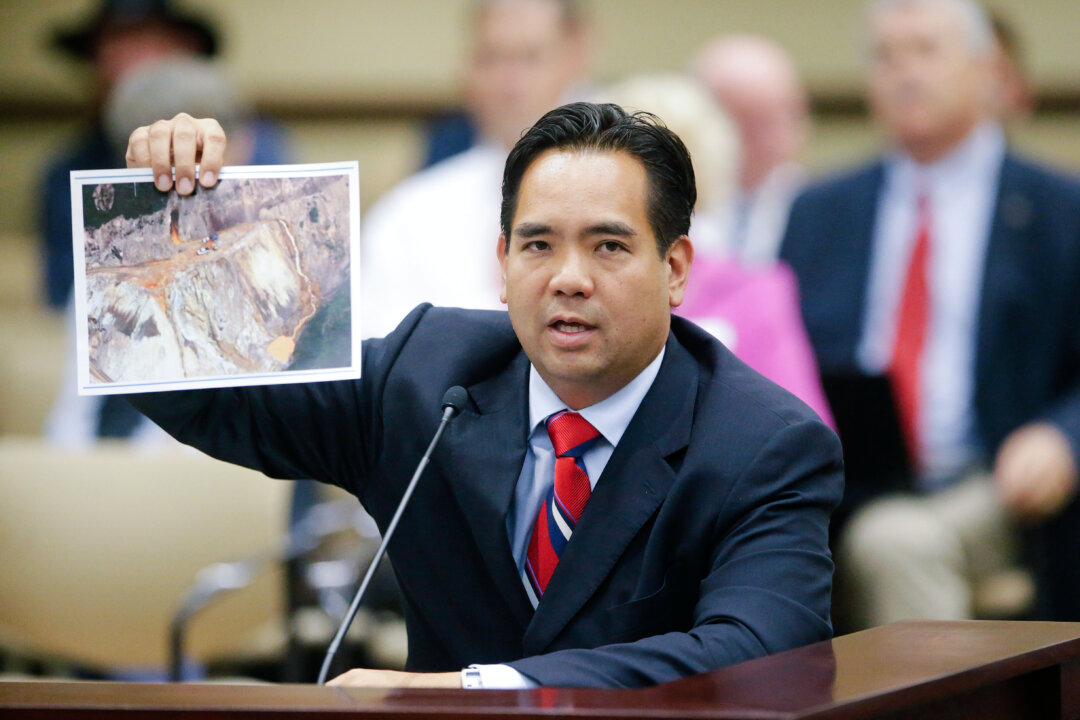Utah’s motion seeks direct hearing before the nation’s highest court to determine if federal agencies can ‘indefinitely hold public lands.’
The United States Department of Justice (DOJ) is urging the U.S. Supreme Court to reject Utah’s motion for it to hear a lawsuit challenging the federal government’s “continued possession of unappropriated public lands.”
While the court has not agreed to hear Utah’s case, the state’s claim that the U.S. government, which manages more than a quarter of the nation’s land mass, does not have a constitutional right to hold land “indefinitely” underscores decades of tension between locals and federal land-use policies across the west.
Utah’s motion seeks to directly file a “bill of complaint” to initiate a lawsuit before the highest court without a preceding string of lower court appellate rulings.
The motion does not “satisfy the usual criteria,” the DOJ’s six-attorney team spearheaded by Solicitor General Elizabeth Prelogar said in their 32-page Nov. 21 brief.
Utah’s motion “faces significant jurisdictional and procedural barriers, and lacks merit,” they said.
Utah’s Aug. 20 motion asks the Supreme Court to determine if federal agencies can “indefinitely hold public lands” without land-use designations.
Federal agencies administer 37 million acres in Utah, nearly 70 percent of the state’s land mass. The Department of Interior’s Bureau of Land Management manages nearly 22.8 million of those acres, almost 42 percent of Utah.
The motion maintains that 18.5 million of the Land Management Bureau’s 22.8 million acres in Utah lack land-use designations, and are thus “unappropriated … without any clear Congressional designation” and should be turned over to state management.
“Current federal land policy violates state sovereignty and offends the original and most fundamental notions of federalism,” Utah Attorney General Sean Reyes said in a statement accompanying the motion.
Utah argues that when it became a state in 1896, the U.S. government had a “duty to dispose” of “unappropriated lands” in the state “not reserved for another purpose,” such as a national park, national forest, national monument, or national wildlife refuge.
The motion describes 1976’s Federal Land Policy and Management Act (FLPMA) as a “formal policy of indefinitely retaining these lands, regardless of whether it needs them for any governmental purpose or how doing so impacts the interests of the state and its citizens.”
Reyes said that the FLPMA is unconstitutional and that with its adoption, federal agencies “stopped disposing of public lands as per their constitutional mandate.” He said the Constitution “never intended a federal agency to hold onto so much land in any state.”
Twelve Republican state attorneys general submitted an Oct. 22 amicus brief supporting Utah’s position.
“‘Unappropriated lands’ are not being used in the exercise of enumerated powers,” the brief penned by Idaho Attorney General Raúl Labrador states.
Roughly 80 percent of the Land Management Bureau’s land in Idaho is “unappropriated land,” he said, meaning “more than 9 million acres are not reserved for any designated purpose.”

Fast-Track for Decades-Old Debate
Utah is seeking a fast track to get before the Supreme Court by invoking original jurisdiction, which allows states to directly petition the Court to resolve an issue between a state and the federal government. There is no requirement, or timeline, for a decision.
Responses to Utah’s motion were due on Oct. 22. The DOJ in late September received a “necessary extension” to Nov. 21.
In its response, the DOJ argued that Utah’s characterization of the case as “only a purely legal issue”—as a reason for it to skip lower courts—is incorrect.
Utah is making material claims by alleging federal agencies are “simply holding” land and defaulting on its “enumerated powers,” the DOJ says, adding there are also unresolved “factual disputes.”
“Utah has not established standing here,” the DOJ said, noting the state’s argument apparently is that “the Constitution requires Congress to convey land to it to … tax and regulate.”
The DOJ maintains the FLPMA is constitutional. Congress adopted it with language stating that the disposal of public lands must “serve national interest,” the brief said, noting Utah makes no such “national interest” claim.
The DOJ’s brief is the 12th filed on the motion. The other 11 support Utah.
Wyoming lawmakers are among four western state legislatures to file briefs backing the bid.
Wyoming state Rep. John Bear (R-Gillette) said 48 percent of his state is administered by federal agencies, leaving local economies at the mercy of Washington’s whims.
“We’ve seen in the last six months, the Biden administration take away our ability to use that land to the best of its ability, to the benefit of local economies,” he told The Epoch Times in June.
It’s an existential battle, Bear said.
“Wyoming is ground zero for the ‘30 x 30 plan,’” he said referring to the Biden Administration’s January 2021 executive order outlining intent to set 30 percent of federal public lands and ocean areas aside for conservation by 2030.
Utah’s Congressional delegation, including out-going Sen. Mitt Romney (R-Utah) and Sen. Mike Lee (R-Utah), among candidates to be next Senate Natural Resources Committee chair, has filed a brief supporting the state.
Utah House Reps. Blake Moore, Celeste Maloy, Burgess Owens, and John Curtis are signatories. Curtis, who won November’s Senate election to succeed the retiring Romney, chairs the Congressional Conservative Climate Caucus and has been a harsh critic of federal lands management.
In 2024 alone, Curtis sponsored at least three bills exerting local control over federal public lands, including an approved bill that permits Utah to exchange 150,000 acres of state land within Bears Ears National Monument for 150,000 acres of land controlled by the Land Management Bureau elsewhere in the state.
Utah state Sen. Mike Kennedy, a medical doctor who will assume Curtis’s House seat in January after winning his race in the Nov. 5 election, told The Epoch Times that pushing for state control of federal lands will allow for greater flexibility in energy development.
“Utah coal is some of the cleanest in the world, and we’ve got vast supplies of it. And we’re shutting down plants using coal and natural gas, which is shocking. Energy independence is fundamental,” he said.
2017 Redux?

A bevy of conservative groups have also filed briefs supporting Utah, including the American Lands Council, Utah Public Lands Council, Pacific Legal Foundation, and American Legislative Exchange Council (ALEC).
ALEC, in particular, has been a force since the 1990s in agitating for state control of federal lands as part of a broader “divest-and-transfer” movement.
The Washington, D.C.-based think tank frequently drafts model federal and state legislation for conservative causes, as well as the cookie-cutter bill based on Utah’s seminal 2012 Land Transfer Act, that has been introduced into at least seven Western state legislatures demanding control of federal land within their boundaries.
State control advocates and divest-and-transfer proponents are pursuing in court what couldn’t be achieved legislatively during the early days of the first Trump administration, when then-Rep. Jason Chaffetz (R-Utah) filed HR 621, his proposed “Disposal of Excess Federal Lands Act” that called for selling 3.3 million acres under the Land Management Bureau in 10 states.
Chaffetz, who Curtis succeeded in 2018, submitted the bill on Jan. 24, 2017, but withdrew it a week later in the face of heated opposition from a coalescence of constituencies, from hunters to the U.S. Humane Society, that joined forces with businesses and industry associations to lobby against the proposal.
Among them: The Theodore Roosevelt Conservation Partnership, Rocky Mountain Elk Foundation, the Sportsmen’s Alliance, Outdoor Industry Association, Outdoor Alliance, National Shooting Sports Foundation, Backcountry Hunters and Anglers—of which Donald Trump Jr. is a member—Trout Unlimited, Quail Forever, Sitka, Old Milwaukee, the National Wildlife Foundation, Kimber, Pheasants Forever, National Wild Turkey Federation, Remington, Powderhook, the Wilderness Society, Center for Western Priorities, National Bowhunters Association, and Sierra Club, the nation’s largest grassroots conservation organization with more than 2 million members.
The Center for Biological Diversity, which sued the Trump administration more than 266 times, and Earthjustice, which filed about 200 lawsuits against the Trump administration, have already pledged to challenge any attempt to give states control of federal lands.

